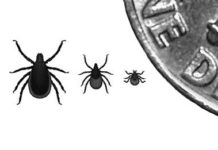Is a Clinical Trial Right for Your Cat?
If your cat had a life-threatening disease with no effective treatment, would you enter him in a clinical trial that might result in a helpful drug or other therapy - perhaps even a cure? Clinical studies are essential in moving medicine forward and often rely on the participation of animals with naturally occurring diseases to find answers.
When Theres Hair, Hair Everywhere
If clouds of cat hair dont complement you, your furniture or your home, you may be among the owners looking for solutions to shedding. Dermatologist William H. Miller, VMD, Medical Director of the Cornell University Companion Animal Hospital, has a simple two-step prescription to tame it: a brush and a vacuum.Shedding is a normal function. However, Dr. Miller offers this cautionary advice: If your cats shedding appears to be unusually heavy or results in bald spots, make a veterinary appointment to determine if he has an underlying medical condition. High fevers, allergies, the hormonal imbalance hyperthyroidism, pregnancy and parasites like fleas and ticks can cause a cat to shed excessively.
Ask About Advantages And Drawbacks
If you want to check out a potential clinical trial for your cat, these are questions to ask his veterinarian and the studys research coordinator.
Three Simple Tips To Tick Removal
Ticks can be found anywhere on a cats body but usually attach near the head, neck, ears and feet. If you discover one, remove it as soon after attachment as possible, says Meryl Littman, VMD, ACVIM, at the University of Pennsylvania. Do not cover the tick with Vaseline, gasoline or anything else beforehand. And do not remove it with your bare hands - a crushed ticks bacteria could get into your cuticles and infect you.
They’re Always Looking For A Welcome Host
Lyme disease bacteria live in deer ticks that feed on deer, rodents and other hosts. A tick in search of a meal may lurk on a blade of grass or bush. When a promising animal passes by, it grabs hold and hitches a ride. Once aboard, it crawls along, seeking an unobtrusive patch of skin, then latches on with its front legs, cuts open the skin with its mouthparts and inserts a barbed feeding tube that makes removal challenging.
Indoor Cats Arent Safe From Lyme Disease
Ticks used to be most active in spring through autumn, but rising temperatures attributed to global warming have shortened their long winter naps and in some areas eliminated them entirely. The result: Tick bites have become a year-round risk in many parts of the U.S.
Content, Agitated, Fearful, Aggressive?
Scientists estimate that cats have lived with us for at least 9,000 years, and surveys show that many of the 45 million households in the U.S. today consider their 96 million cats bona fide members of the family. Yet after all these years, how well do we really understand cats?It turns out not that well, says Katherine Houpt, VMD, Ph.D., animal behaviorist and professor emeritus at Cornell University College of Veterinary Medicine. Cats body language is daunting for many of us to interpret, particularly because of their anatomy.
Neither a Smile, Nor a Grimace
If your cat curls his top lip and inhales, he may look as if hes smiling or even grimacing, but hes actually sniffing out odors. The behavior, called the flehmen response, is particular to mammals, such as members of the cat family, horses, cattle and pigs.
A Promising Study of Fish Oil Fails to Test Cats Because of Their Size
A promising study about supplementing with deep-sea fish oil illustrates one of the challenges in conducting research on cats and why more research is done on dogs than cats.A study of 77 dogs with osteoarthritis found that, when compared to a placebo, The fish-oil treated patients improved significantly in many of the variables … indicating a true but small relief in symptoms. Those dogs had improved in quality of life in locomotion and everyday situations, according to the report published in BMC Veterinary Research in 2012. Supplementation could be considered part of a total pain-relieving approach, especially for dogs who do not tolerate anti-inflammatory drugs, the researchers said.
A Nutritionist’s Top Recommendations
Generally speaking, which supplements are beneficial for cats? Which are essential for their health, especially as they age and need to maintain mobility and cognitive ability?
Learn the Truth about Supplements
Manufacturers in the $1-billion pet supplement market would like cat owners to believe that an array of their products, ranging from glucosamine to fish oil to vitamin pills, will help our cats live longer, healthier lives. Whether those supplements are actually effective is not known. Few large-scale studies have been done, and governmental oversight and regulations do not exist.Nutritionist Joseph Wakshlag, DVM, Ph.D., ACVN, ACVSMR, at Cornell University College of Veterinary Medicine believes there is little proof that many of the promotional claims about supplements are accurate; however, one study on deep-sea fish oil has shown it can be beneficial. Dr. Wakshlag, president-elect of the American College of Veterinary Nutrition, explains more about the fish oil study in the sidebar on Page 5 and on supplements in general in the following Q & A.
In The News: March 2015
Animal shelters in the U.S. take in 3.4 million cats annually and euthanize 1.3 million of them. Two shelter medicine programs have set out to save many of those lives with the launch of the Million Cat Challenge.The Koret Shelter Medicine Program at UC Davis, Maddies Shelter Medicine Program at the University of Florida and hundreds of animal shelters throughout North America want to challenge animal control facilities and private shelters to reduce euthanasia.















